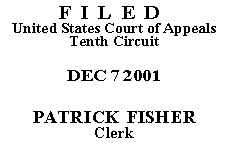

| UNITED STATES OF AMERICA,
Plaintiff-Appellee, v. L. SHYRL BROWN and ILA D. BROWN, Defendants-Appellants, and ELLIS A. NEILSON and CARMEL NEILSON, Defendants. |
|
Defendants L. Shyrl Brown and Ila D. Brown appeal the district court's denial of their motion to set aside judgment and motion for summary judgment dated April 5, 2001. We have jurisdiction pursuant to 28 U.S.C. § 1291, and we affirm.
On July 11, 1991, the district court entered judgment against defendants in the amount of $190,404.89, plus interest and statutory additions, for unpaid income taxes. The district court also found L. Shyrl Brown's conveyance of business property to his wife was fraudulent, and ordered the property foreclosed and sold to satisfy the debt. Defendants appealed, and on December 23, 1992, this court affirmed the district court's judgment.
On December 20, 2000, defendants filed a motion to set aside the 1991 judgment, and on February 2, 2001, they filed a motion for summary judgment. The sole basis for each motion was defendants' contention that the order to foreclose and sell the business property was barred by the statute of limitations found in 28 U.S.C. § 3306. The district court denied both motions. On appeal, defendants have added an argument that the order to foreclose was barred by the statute of limitations found in Utah Code § 25-6-10, however, this issue was discussed and their claim rejected by this court in their previous appeal. See United States v. Neilson, No. 91-4175, 1992 WL 401598 (10th Cir. Dec. 23, 1992).
Because of the time limitations for filing motions under the federal rules, defendants' motions before the district court, however captioned, could only be construed as falling under Rule 60(b). Defendants now claim to proceed under Rule 60(b)(4) and (6) so as to avoid these time restrictions, and argue they have "newly discovered law" showing the district court's judgment to be void under Rule 60(b)(4). See Aplt. Reply Br. at 4. "We review the district court's denial of a Rule 60(b) motion for abuse of discretion." Servants of the Paraclete v. Does, I-XVI, 204 F.3d 1005, 1009 (10th Cir. 2000). Where, however, Rule 60(b)(4) is properly invoked on the basis that the underlying judgment is void, "'relief is not a discretionary matter; it is mandatory.'" Orner v. Shalala, 30 F.3d 1307, 1310 (10th Cir. 1994) (quoting V.T.A., Inc. v. Airco, Inc., 597 F.2d 220, 224 n.8 (10th Cir. 1979)). Accordingly, our review is de novo. See, e.g., Wilmer v. Bd. of County Comm'rs, 69 F.3d 406, 409 (10th Cir. 1995) (citing King Fisher Marine Serv., Inc. v. 21st Phoenix Corp., 893 F.2d 1155, 1158 (10th Cir. 1990)). Nevertheless, even construing defendants' post-judgment motions liberally as falling under Rule 60(b)(4), we find no merit to their claim.
The two year statute of limitations found in 28 U.S.C. § 3306(b) only applies to actions or proceedings arising under Subchapter D of the Federal Debt Collection Procedures Act of 1990, 28 U.S.C. §§ 3001-3308. Section 3001 clearly specifies that "[t]o the extent that another Federal law specifies procedures for recovering on a claim or a judgment for a debt arising under such law, those procedures shall apply to such claim or judgment to the extent those procedures are inconsistent with this chapter." Id. § 3001(b). In the 1991 case, the district court had jurisdiction pursuant to 28 U.S.C. § 1340 and 26 U.S.C. § 7402. That court's use of the Internal Revenue Code's statute of limitation for collection after an assessment found in 26 U.S.C. § 6502 was entirely proper, and in no way made that court's judgment void. Therefore, in the present case the district court appropriately dismissed defendants' motions.
We have reviewed the remainder of defendants' arguments on appeal regarding the inapplicability of the Internal Revenue Code to their case, and we find them to be without merit. The judgment of the district court is AFFIRMED.
Entered for the Court
Circuit Judge
*. This order and judgment is not binding precedent, except under the doctrines of law of the case, res judicata, and collateral estoppel. The court generally disfavors the citation of orders and judgments; nevertheless, an order and judgment may be cited under the terms and conditions of 10th Cir. R. 36.3.